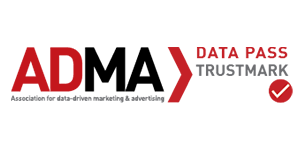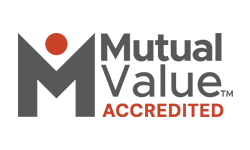With online transactions increasing considerably, scammers have taken advantage of this trend by setting up fake websites and deceiving people into buying from them. It can be more difficult than ever to ensure the person or organisation you’re dealing with is legitimate and these scams can target both buyers and sellers, so it’s important to be aware of the signs.
As a buyer, you may be tricked into paying for a product or service that may not exist or is never delivered with scammers creating fake websites or advertisements. These are also known as online shopping scams, classified scams, health and medical product scams, mobile premium services scams, or psychic and clairvoyant scams.
As a seller, you may be tricked into believing the buyer has paid in full or even paid over your advertised amount, including sending falsified payment receipts to support their claim. The buyer may request a refund for overpayment or reimbursement for out of pocket expenses, or you later find the amount was not paid into your account.
For more information visit Scamwatch.
Warning signs and what to look for
- A seller offers products at an unbelievably low price. They claim they have amazing benefits or features that sound too good to be true.
- An online seller doesn’t have any terms and conditions, ABN or privacy policy on their website.
- A buyer willing to buy an expensive product you are selling without viewing it in person.
- A buyer sending funds for more than the agreed price and then they ask you to refund the overpaid amount.
- You are told that you must pay by money order, pre-loaded card or pay to several different accounts.
- Contains an urgent warning or error message asking you to click a link
- The payment to the person or business you think you are paying, doesn’t match the identity of the account holder
- A buyer has already arranged for someone to pick up the item or they live interstate or overseas and can easily buy similar items locally.
How to protect yourself
- Compare prices. If an offer appears too good to be true, it probably is
- Research the organisation or person you are dealing with before buying or providing personal information. Look for the ABN and check it on ABN look up.
- Check reviews of the store and its products on Google and their social media accounts
- If possible, meet in person to exchange the item and cash
- Avoid unusual payment arrangements such as money orders, international fund transfers, pre-loaded card or electronic currencies such as bitcoin
- Don’t rush or be pressured by ‘limited offers’ or end of sale ‘countdowns’ – scammers always try to create a sense of urgency.
- Keep the device you use for online shopping up to date by enabling ‘automatic updates’ for your operating system and apps.
What to do if you have been scammed
If you suspect or have been targeted by a buyer or seller scam:
- Contact us immediately (How to report fraud or scams)
- Cease all communication with the person
- Change your online banking passwords and card PIN
- Contact IDCARE on 1800 595 160. IDCARE is a free, government-funded service that provides support to victims of identity crime
- Report the scam online to Scamwatch
Lock your card
- Log into our Mobile App and select "Cards" from the Menu and select "Lock Card"
Report lost, stolen or captured card
- Please contact us immediately if your G&C Mutual Bank credit or debit card is lost, stolen or captured. Call us on 1300 364 400, 24 hours a day, 7 days a week.
- For overseas assistance, call us on +61 2 9307 5400 or contact Visa Global Customer Assistance +1 303 967 1090 (international) or the VISA International Hotline specific to the country you are in.
- Email us with the subject: URGENT lost or stolen card
- Contact us before you travel overseas so we can monitor your account more closely. You will also avoid transactions on your cards being stopped by us when we detect overseas purchases. We will need to know your departure date, return date, destination and contact details while you’re away.
- Alternatively, you can complete the Overseas Travel Form within our Mobile App.
- Read more about staying financially safe overseas to ensure your travels are memorable for all the right reasons.







